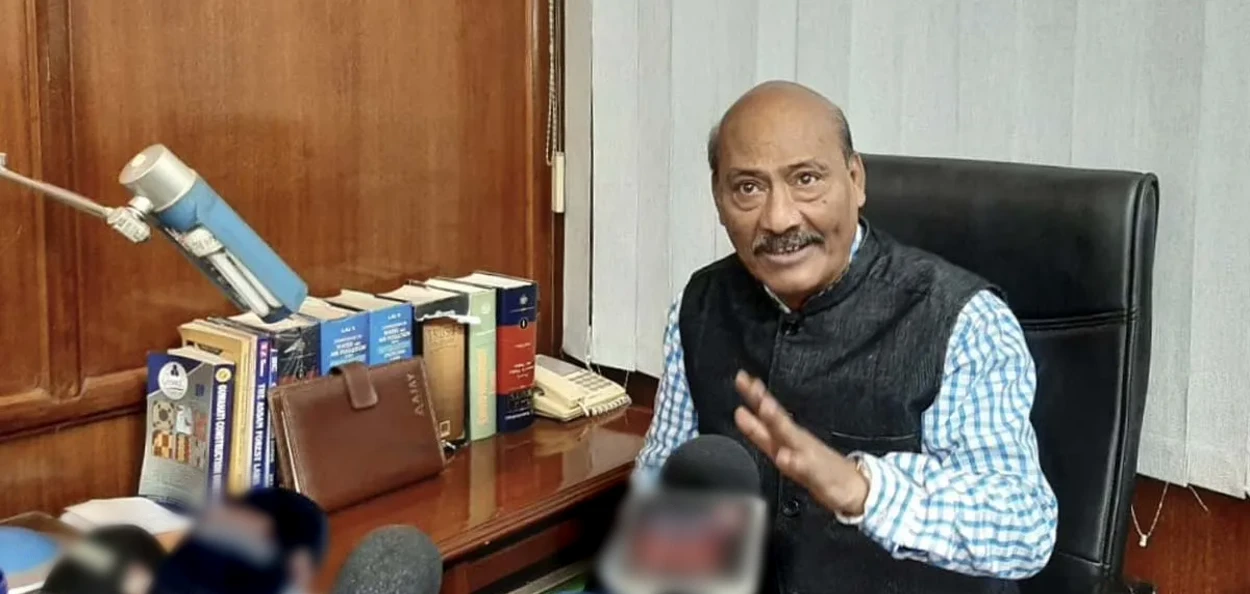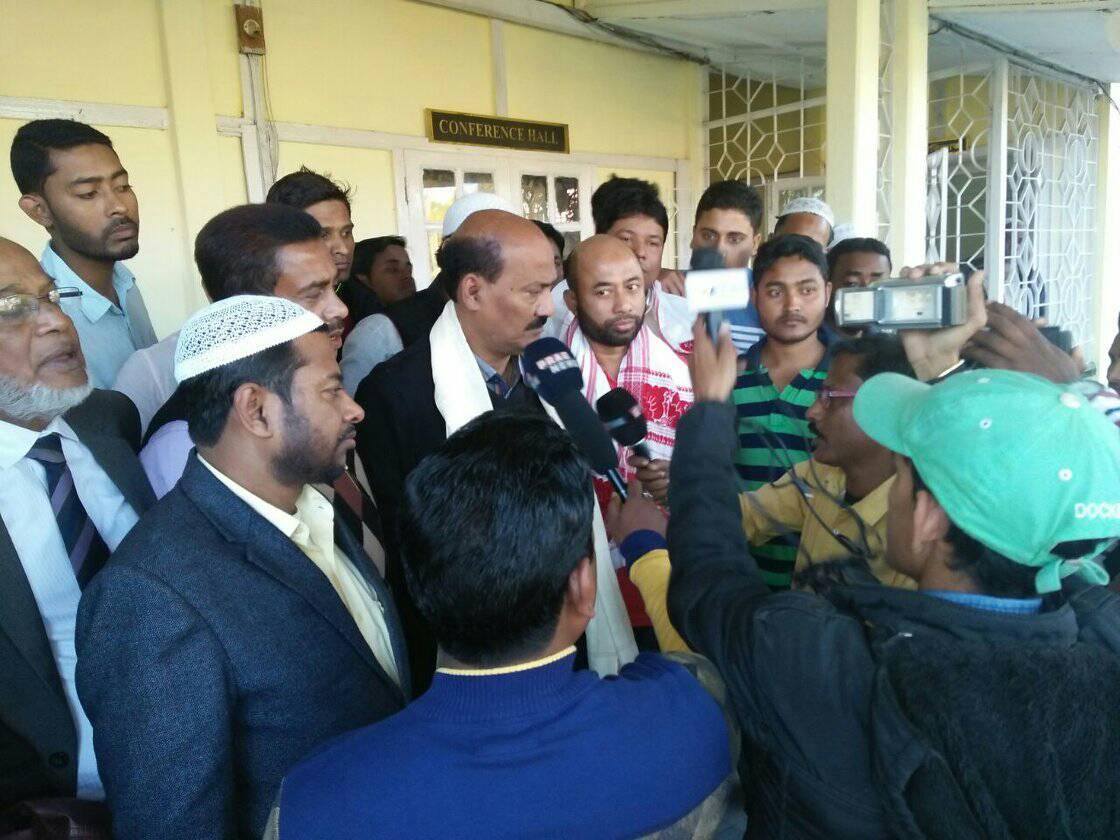
Ariful Islam/Guwahati
Nekibur Zaman, the former Chairman of the Assam Waqf Board has pointed out the rampant corruption in the Waqf Board and said he tried to pinpoint the cases but no action was taken.
The Assam Waqf Board (AWB) has been in dire straits at a time when the Narendra Modi government has proposed the Waqf Board Amendment Bill.
Zaman, a senior advocate says that there are many reasons why the Waqf property in Assam has not been used properly.
Speaking with Awaz-the Voice, he said, "Waqf is divided into two parts. The first part is Waqf-e Awlad and the second part is Waqf-e Fitah bilillah. Waqf-e Awlad involves the Waqf Board with the family of the owner of the property and the revenue generated from it."
It may be mentioned that the Waqf properties are devoted primarily to religious or charitable purposes of the Muslim community. Over time, serious concerns have been raised about the abuse of these assets. Government authorities said the amendment was necessary to ensure transparent and efficient handling of Waqf Board properties despite strong criticism from the opposition.
In an interview with Awaz-The Voice, Assam, Zaman said, "Waqf is divided into two parts. The first part is Waqf-e Awlad and the second part is Waqf-e Fitah bilillah. Waqf-e Awlad involves the Waqf Board with the family of the owner of the property and the revenue generated from it."
 Tea plantations of Barak Valley in Assam
Tea plantations of Barak Valley in Assam
On the other hand, Waqf-e-Fitah bilillah means that the owner gives the property to the Waqf Board and the owner cannot carry out any reconstruction work on the property without the knowledge of the Waqf Board. "The main function of the Waqf Board is to help the backward people and various community institutions, colleges, mosques, and madrassas.
According to Zaman, there are about 17,000 bighas of waqf land in Assam. The tea plantations of the Barak Valley are also on the Waqf land.
However, no revenue is generated from the Waqf properties in Shillong, Guwahati, Fancy Bazaar, Lakhtakya, Panbazar, etc. In the normal course, all these properties should have generated a lot of income.
This is because there is rampant corruption in the revenue generation. In 2017, "I took over as the Chairman of the Waqf Board for two years. I highlighted the corruption in the media. However, no proper action has been taken. The year is coming to a close and the board has not been constituted yet. I don't know the reason.
"Many officers of the Waqf Board and a group have been looting the waqf resources; they appoint people unauthorisedly. The government has not taken any action against them. This Act was implemented in 2013 and should have come into force long back."
Zaman says for the above reasons, it's necessary to take measures to prevent the spread of the disease of corruption.
"Former Assam Assembly Speaker Pranab Gogoi formed a House Committee to investigate the functioning of the Waqf Board during the Congress regime. The members visited various parts of the state to review the documents and submitted a report to the Assembly"
The issue of irregularities in Waqf properties not only in Assam but all over India has come to the attention of the Central Government. The Waqf Amendment Bill 2024 which is being examined by the Joint Committee of Parliament (JPC) was conceived to address various issues related to the management and governance of Waqf properties in India. Union Minority Affairs Minister Kiren Rijiju introduced the Waqf Amendment Bill in the Lok Sabha on August 8 amid strong objections and uproar from the Opposition. The opposition objected to its provisions and it was sent to the Joint Parliamentary Committee for consensus.
 Nekibur Zaman with local media in Guwahati
Nekibur Zaman with local media in Guwahati
Zaman says, one of the key objectives of this amendment is to prevent encroachment of Waqf properties. The amendment aims to empower the authority to reclaim such property for use for its original purpose.
The Bharatiya Janata Party (BJP) has formed a special team to talk to the Muslim community about the Waqf Board Amendment Act.
The seven-member team is traveling to various states to meet Muslim clerics, elicit their views, understand their concerns, and collect their suggestions on the bill. The members would also explain why this amendment is important and how it can benefit the community.
Though there is a general perception that Muslims are opposing the Waqf Board Amendment Bill, however, BJP Minority Front national president Jamal Siddiqui said many Muslim leaders have no problem with the bill.
He claimed that the BJP is working to protect the waqf properties and the rights of poor Muslims.
The Joint Parliamentary Committee, which is reviewing the Bill, is also expecting input from the public, NGOs, experts, and other stakeholders. Suggestions can be sent by mail or e-mail within 15 days of the advertisement.
ALSO READ: An ordinary Muslim would like to see a corruption-free Waqf system
The Joint Parliamentary Committee has already started meetings to discuss the bill and gather views from various groups. Subsequent meetings will be held on September 5 and 6, where various government ministries and organizations will share their views.
